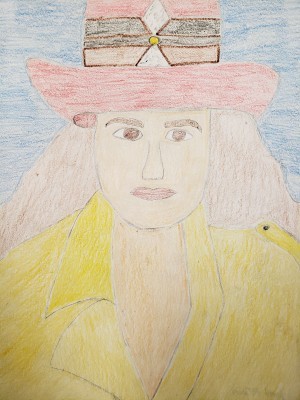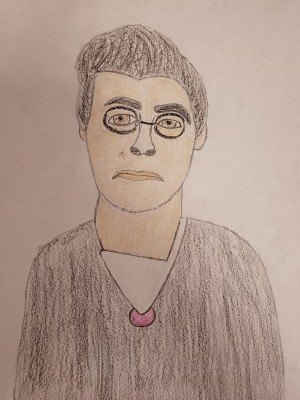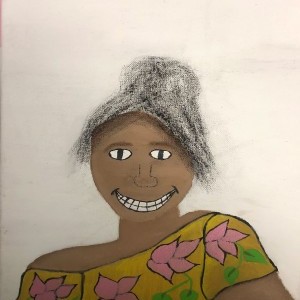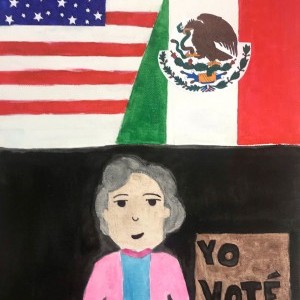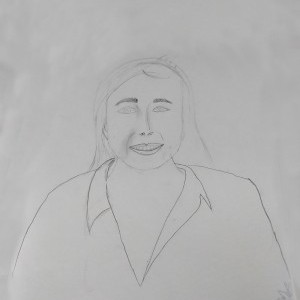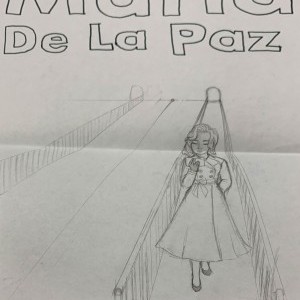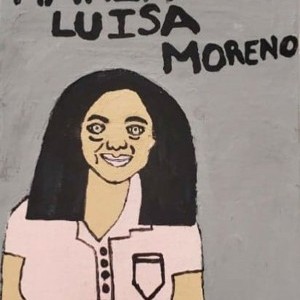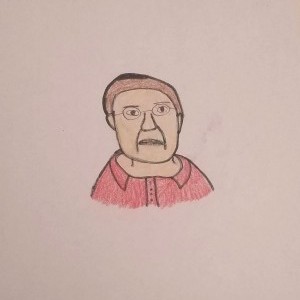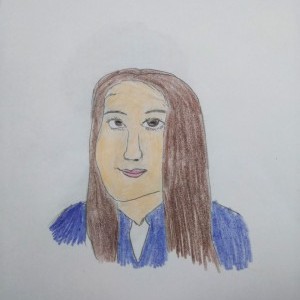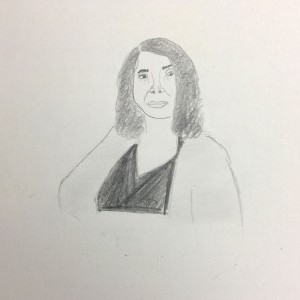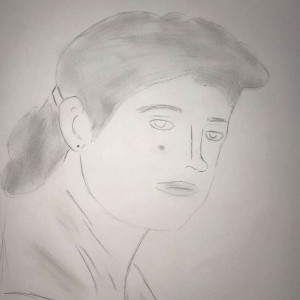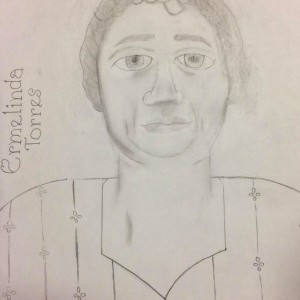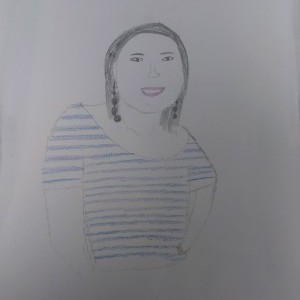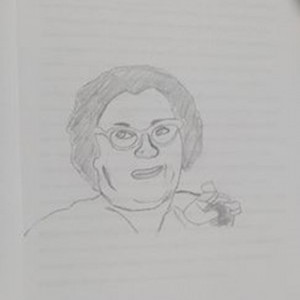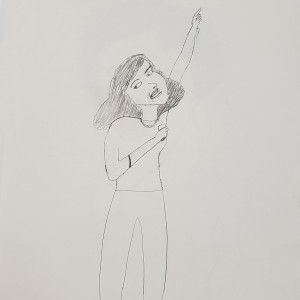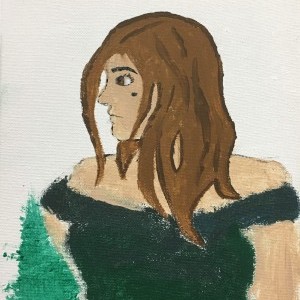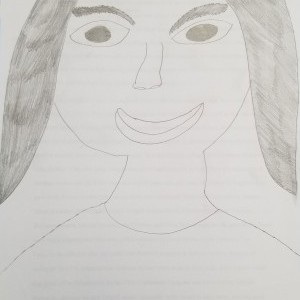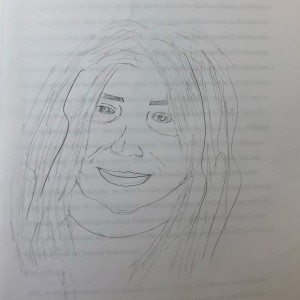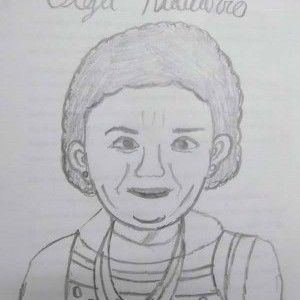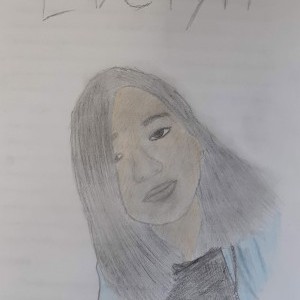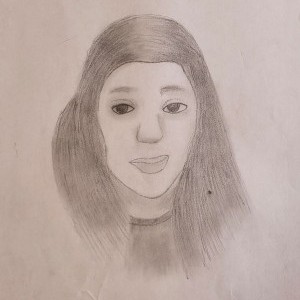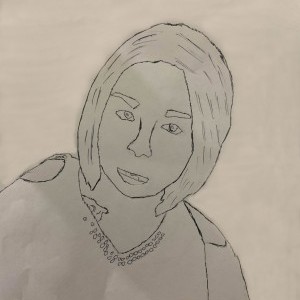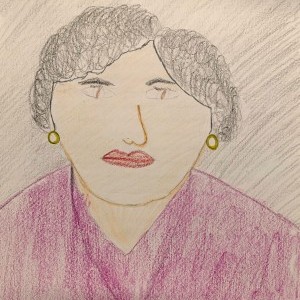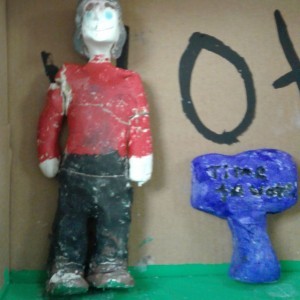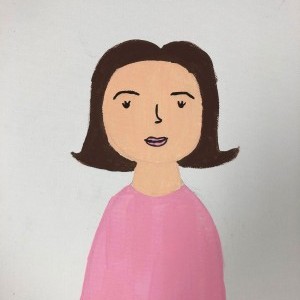Jared McCain
García Early College High School | Laredo, TX | 10th Grade
Inspirational Family Member
My Grandmother
The first female to vote in my family is my grandmother. She was born in Laredo, Texas, and grew up in a relatively poor household. My grandmother and her siblings would have to scrape by in life, saving up money whenever possible and even reusing clothes from siblings. She lived thrifty and frugal for most of her childhood, even up to her high school graduation and college years. When she finally left her mother’s house, she went to attend college to seek a better education. She attended the Laredo Community College. Eventually however, she had to drop out of college because of emergencies in her family that occurred.
During this time, in the 1980s, my grandmother voted for the first time in the 1984 United States presidential election between incumbent Republican Ronald Reagan and former vice president Walter Mondale, the Democratic candidate. Ronald Reagan blew out the election, winning every state, save for Minnesota and the District of Colombia. She had voted for Ronald Reagan, because she believed that he was a good president in the previous term, and because he helped the economic status of the United States during these years. She was also influenced by her mother, who also grew up in poverty and believed in what Ronald Reagan was saying, however my great-grandmother herself never actually voted. My grandmother believed Reagan’s main goal of economic growth was good for herself and her family. She did not dislike Walter Mondale’s campaign, but she believed Ronald to be the better candidate in general.
This was a huge deal for her and my great-grandmother, being the first female to vote. My grandmother said that this made her have a sense of joy and pride, because she could see how far the United States had come from when my great-grandmother was a child.
Historical Figure I Admire
Hannah Sheehy-Skeffington
Hanna Sheehy-Skeffington was born on May 24, 1877, in Kanturk, Ireland. Hanna’s father, David Sheehy, was an active member of the Fenian movement and was forced to flee to the United States to avoid prosecution. After returning from exile, David married Elizabeth McCoy and had 6 children. Hanna was the firstborn child. She was raised Roman Catholic, as were the religion of both the Sheehys and McCoys. She attended Catholic schools in Dublin and the Catholic university, and attended the Dominican Convent on Eccles Street, which was founded in 1882 and widely considered the best school available for girls. All of Hanna’s sisters attended this school as well. She was an exceptionally good student and won several exhibitions. It was in school when Hanna realized that the education of females was based on the assumption that wifehood and motherhood were all they could do for fulfillment in life. Hanna felt that women were intellectually equal of men, and should not be restricted educationally for their sex.
Skeffington was an Irish woman, patriot, pacifist, and suffragette. Her career began as a teacher, however, she lost her job when working at the Rathmines School of Commerce in 1913, because of her involvement in feminist militancy. Hanna co-founded the Irish Women’s Franchise League and the publication The Irish Citizen. She was arrested in 1912 because of her participation in rallies and marches and was arrested again in 1913 as a result of the militant tactics being used in the suffrage society. Her anti-war views caused the British government to prevent her from attending the International Congress of Women held in The Hague in April of 1915. The following year, Hanna traveled to the U.S. to discuss the fight for Irish independence and to raise awareness about Sinn Fein – a left-wing Irish republican political party.
Hanna stood for election as an independent candidate in 1943, a campaign that stood for “equal pay for equal work, equal opportunities for women, the removal of the marriage ban on teachers, doctors, and other skilled women, the restoration of jury rights, the abolition of the Means Test, proper pensions for the aged, widows and the blind, and paper meals and books for school children.”Hanna wanted more direct involvement in the public sphere. Hanna also believed that family came second, and the feminist movement came first, which was gaining momentum in Ireland. The Irish Women’s Franchise League was now well established in Dublin. It had held monthly meetings, which were fully attended. Later during this time, the International Women’s Franchise League was extending its operations to the provinces, the reason being: the W.F.L. in England was attempting to run the Suffrage movement in Ireland on English lines.
Hanna, in 1934, instituted a suit against the New Catholic Press of Manchester when the paper claimed she accepted a pension from the British government. Her case went to court in early June, and at year’s end she had won the suit and been awarded 750 pounds in damages. However, the New Catholic Press went bankrupt and was never able to receive the money. After leaving the Young Ireland Branch, she worked as a drama critic for the Irish Press for the rest of her life.
Hanna passed away in 1946 and had accomplished many significant advances for women’s voting in Ireland. Without her contribution to the 1911 census boycott, International Women’s Franchise League, essays about feminist movements, and much more, Ireland would have been in a state of sexism for many more years to come.
SOURCES +
What the Project Means to Me
I believe that this was a great accomplishment for my family. The fact that it was my own grandmother makes it even more impactful for me, because being able to know how she grew up and how she felt when voting for the first time. I think it was even more impactful for her because it made her mother very happy and proud, and it was also impactful because her first vote was for a President of the United States. This was a milestone in my family’s history and will always be remembered by myself.
The biggest takeaway I got from this knowledge is that voting matters no matter how small or big it is, whether it be local, state, or federal. Of course, my grandmother voted federal, but this was still a big deal for her as a United States citizen. This first time my grandmother voted allowed many others female members of my family to have the courage to head out and vote whenever possible, and now everyone I know votes for the local mayor, the state senator, and even the US presidents. My grandmother was a huge inspiration for many others in my family and did what no other female had previously done.
Explore the Archive
More From This Class
Click on the thumbnails below to view each student's work.Deadline Extended
There's still time to join Women Leading the Way.
Become a part of our storytelling archive. Enroll your class today.
Join the Project

